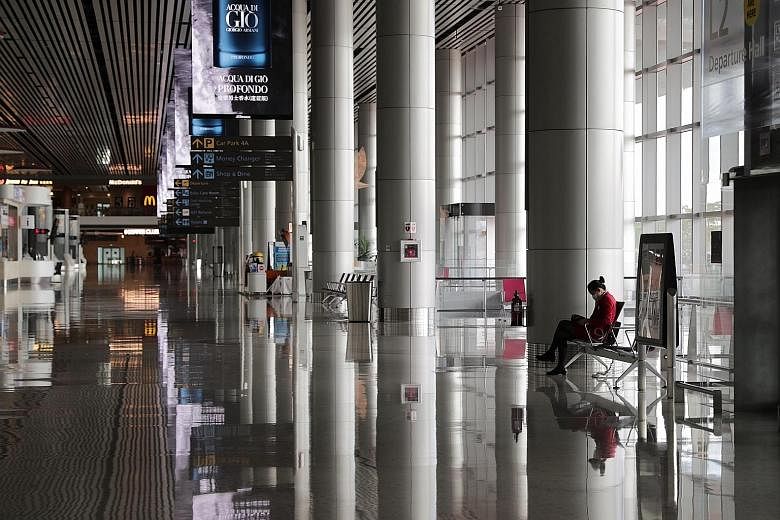Aviation and aerospace companies will continue with their cost-cutting efforts, including retrenchments, even as they get much-needed help from schemes such as the extended wage support programme.
Bottom lines continue to be decimated while the Covid-19 pandemic rages on, with a full recovery for air travel nowhere in sight.
Mr Sia Kheng Yok, chief executive of the Association of Aerospace Industries (Singapore), or AAIS, said: "Government support buys time for companies to re-strategise, pursue alternative business models, explore opportunities and pursue internal transformation.
"However, given that the weak aviation market will persist for another few years, some companies may eventually be forced to trim their workforce after exhausting other avenues."
Deputy Prime Minister Heng Swee Keat had on Monday announced that aviation and aerospace companies will receive 50 per cent wage support for the first $4,600 of monthly pay for each local employee, for seven more months.
An additional $187 million will be pumped into Singapore's hard-hit aviation sector - which includes airlines, ground handlers, cargo agents and airport tenants.
Mr Musdalifa Abdullah, chief financial officer of ground handling company dnata, said the funding will help to slow its cash burn. But the company will still have to save costs and "carefully manage our workforce needs in line with the reduced volumes and explore other avenues of income".
He noted that dnata's volumes have fallen by around 95 per cent from the levels before the pandemic.
"There is no short-term solution; we are preparing for a long-haul recovery where the initial focus is firmly on sustainability rather than profitability," he added.
Another ground handling company, Sats, said the support will help it to preserve more jobs and capabilities.
The Singapore Airlines Group - which comprises SIA, SilkAir and budget carrier Scoot - as well as Jetstar Asia welcomed the measures. But both noted that work is ongoing to manage their costs, with most planes still grounded.
Meanwhile, Airbus said that it supports the Government's efforts in protecting Singapore's position as a regional hub for the aerospace industry.
Companies also said that they are adapting their businesses.
Sats' president and chief executive Alex Hungate said the company is stepping up digitalisation and training its staff. He said this will help to create new growth opportunities and mitigate the decline in its aviation business.
An example of this is its recent deal to buy aviation food solutions company Monty's Bakehouse, which Sats says will help it to develop sustainable, low-touch packaging that customers now need.
Mr Musdalifa said dnata will adapt its existing services and introduce new services in response to the changing landscape. An option is to diversify its supply chain into direct delivery of business-to-business air cargo after arrival, he said.
Mr Sia from the AAIS said aerospace companies recognise that relying on government support is not a long-term solution. They have been exploring opportunities, innovating solutions and accelerating their digital transformation, he said.
This includes exploring mergers and acquisitions to build stronger businesses, or diversifying to other sectors like unmanned systems.
He added: "We are looking forward to the announcement of specific measures for supporting the retention of core capabilities in the industry.
"We are also collaborating with government agencies on studying and planning for repositioning of the industry for the future."
On the extended support measures, CIMB Private Banking economist Song Seng Wun said companies will still be losing more money as long as planes are grounded.
"So unfortunately, I suppose it may be necessary to rationalise the payroll since you are not going to be needing as many people... but at least the measures will help to minimise the job losses."












